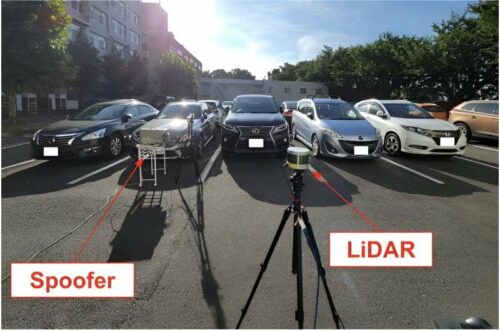This comprehensive analysis of nine commercially available LiDAR systems, including both first-generation and newer models, offers 15 new insights that could shape the future design and manufacturing of autonomous vehicles.

A research team led by the University of California, Irvine has uncovered significant vulnerabilities in Light Detection and Ranging (LiDAR) technology, which is widely used in autonomous vehicles for navigation. The study, conducted in collaboration with Japan’s Keio University, revealed how lasers can be used to deceive LiDAR systems into detecting non-existent objects or failing to recognize real ones, leading to potentially dangerous situations such as unwarranted braking or collisions.
The research team examined nine commercially available LiDAR systems, including both first-generation and newer models, and discovered safety deficiencies in all of them. This comprehensive investigation resulted in 15 new insights that could inform the design and manufacture of future autonomous vehicle systems.LiDAR is a crucial technology used in robotic taxis operated by companies like Google’s Waymo and General Motors’s Cruise, as well as in consumer vehicles from Volvo, Mercedes-Benz, and Huawei. The study highlighted a specific attack called “fake object injection,” where first-generation LiDAR systems can be tricked into perceiving non-existent hazards, such as a pedestrian or another vehicle, leading to unnecessary emergency braking.
Although newer-generation LiDAR systems have implemented measures like timing randomization and pulse fingerprinting to counteract these attacks, the researchers devised a novel method using a custom laser and lens apparatus to hide real cars from the LiDAR sensors. This alarming capability to spoof fake cars and pedestrians or make real cars disappear from the autonomous vehicle’s perception could directly trigger unsafe driving behaviors, including emergency brakes and front collisions. Senior co-author Qi Alfred Chen, UCI assistant professor of computer science, emphasized the unprecedented strength of these attack capabilities on LiDAR sensors, underscoring the need for further research and development to enhance the safety and reliability of autonomous vehicle technology.






